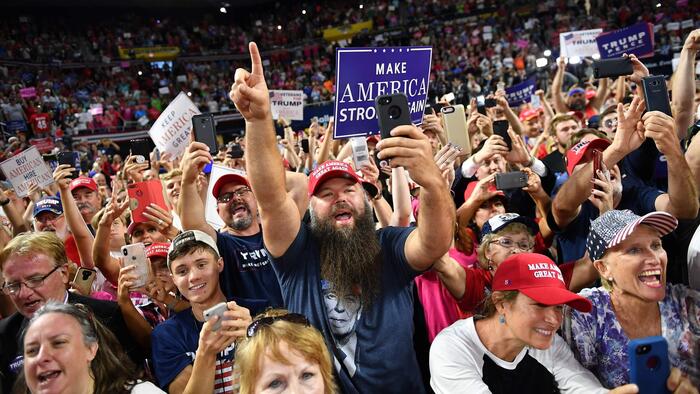In recent years, prominent political figures such as Barack Obama, Hillary Clinton, and Joe Biden have used a variety of derogatory terms to describe a significant portion of the American populace, labeling them as “garbage people,” “deplorables,” and even “semi-fascists.” These labels seem to target a diverse group, primarily consisting of supporters of Donald Trump, those living in rural areas, and traditional middle-class Americans who find themselves increasingly disillusioned with elite narratives. The past few presidential elections have highlighted a divide within the country, showcasing demographics characterized by traditional values, family orientation, and a high school diploma rather than college degrees. This emerging erosion of the middle class has led to a political environment where the Democratic Party is increasingly viewed as the bastion of affluent professionals and those reliant on social subsidies, contrasting starkly with Republican representation of the middle class.
As the political landscape evolves, the Democratic elite’s policy proposals manifest a clear disconnect from the majority of Americans who have not benefitted from economic policies designed in Silicon Valley or by privileged law professors. These policymakers often endorse sweeping reforms—such as radical climate change initiatives and open border policies—that do not reflect the concerns of the broader public. The dichotomy is vivid: while the affluent elite are insulated from the repercussions of policies that may inflate gasoline prices or exacerbate the cost of living, those in the middle and lower economic strata face the direct consequences of what the government decides regarding energy, crime, and education. This elite class thrives amid chaos they do not have to navigate, further deepening the societal rift.
The middle class, juxtaposed against this elite agenda, prioritizes stability and predictable outcomes. Their frustrations are palpable as they watch the political elite push for changes that seem not only impractical but also damaging to their daily lives. In challenging times marked by inflation and economic uncertainty, their desire for secure borders, job stability, and accessible public services genuinely reflects their lived realities. They observe the privileged class advocating for policies that could lead to hyperinflation or societal decline, all while feeling the weight of dependency on government subsidy programs designed for the underserved. The middle class finds itself alienated from the progressive ideals that often seem detached from the common citizen’s plight.
Despite the disparaging rhetoric aimed at them, the middle-class populace—often tagged as “clingers” or “irredeemables”—upholds a sense of national identity tied to longstanding cultural traditions. Their perspective encapsulates a belief in the importance of borders, public safety, and achievable economic opportunity. This contrasts sharply with the views held by notable elites who seem to disregard these foundational aspects of American society in favor of a more abstract, globalized vision. Thus, the struggle is not merely ideological; it crystalizes into conflicting narratives about what constitutes American identity and stability in an increasingly polarized landscape.
Moreover, this sociopolitical schism has resulted in the emergence of a sentiment among the so-called ‘deplorables’ who have grown weary of being insulted and dismissed. There is a burgeoning self-awareness within the working and middle classes, who recognize the absurdity of being derided by those who, despite their titles and degrees, display a profound disconnect from the values and struggles of ordinary Americans. The resignation feels palpable as they observe elites espousing fragile realities that often crumble under scrutiny, while simultaneously lacking accountability. A collective fatigue has fostered an environment where a significant segment of the population questions the merit of elite opinion and authority, driving many to outright reject the narratives imposed upon them.
Ultimately, the growing divide appears to stem not just from policy disagreements, but from a seismic shift in cultural understanding. The elites, often steeped in privilege, seem disconnected from the challenges faced by the general populace. Therein lies the irony: while they possess power and stature, their grasp of core national issues may in fact be weaker than that of the average citizen. The upcoming election cycle stands to underscore this conflict, spotlighting not just traditional left/right divides, but also a revolutionary spirit within the middle class and an earnest questioning of authority that challenges the preconceived notions of elite superiority. Amid this tension, the tables may yet turn, as those labeled as dregs of society discover their voice and power, reshaping the future of American political discourse.

